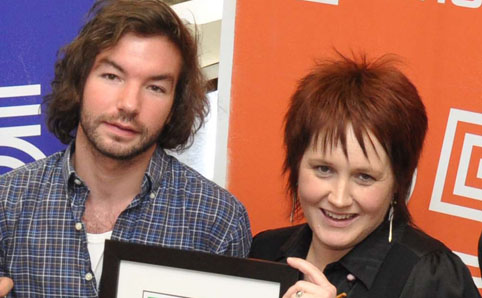 |
|
Jurie Swart with Mrs Martie Bitzer, Head of the Department of Architecture.
Photo: Supplied
13 April 2012
|
The Department of Architecture can be proud of its students. Recently, Jurie Swart was honoured as regional winner of the Corobrik Architectural Student of the Year Award. He was also placed second nationally.
Jurie is an architect at the The Roodt Partnership in Bloemfontein.
Corobrik says in a media release: “Tomorrow’s architects set new standards at 25th Corobrik Architectural Student of the Year Awards. Achieving sustainable built environments with low impacts on the natural environment is becoming a universal goal. Energy usage in buildings is under the spotlight. Water-wise projects are most likely to get the go ahead. That is why an in-depth understanding of the environmental constraints and impacts of technologies on architectural solutions is becoming so important for students of architecture. It is the resolution of environmental issues that can be expected to drive architectural expression that will shape tomorrow’s buildings and the creation, extension and redevelopment of our towns and cities.”
Jurie Swart’s project, Borderline – mediated landscape, a Water Research Centre for the University of the Free State (Qwaqwa Campus), explores whether nature and architecture can amalgamate to become a hybrid solution in a vast landscape which has lost its reference to place and time.